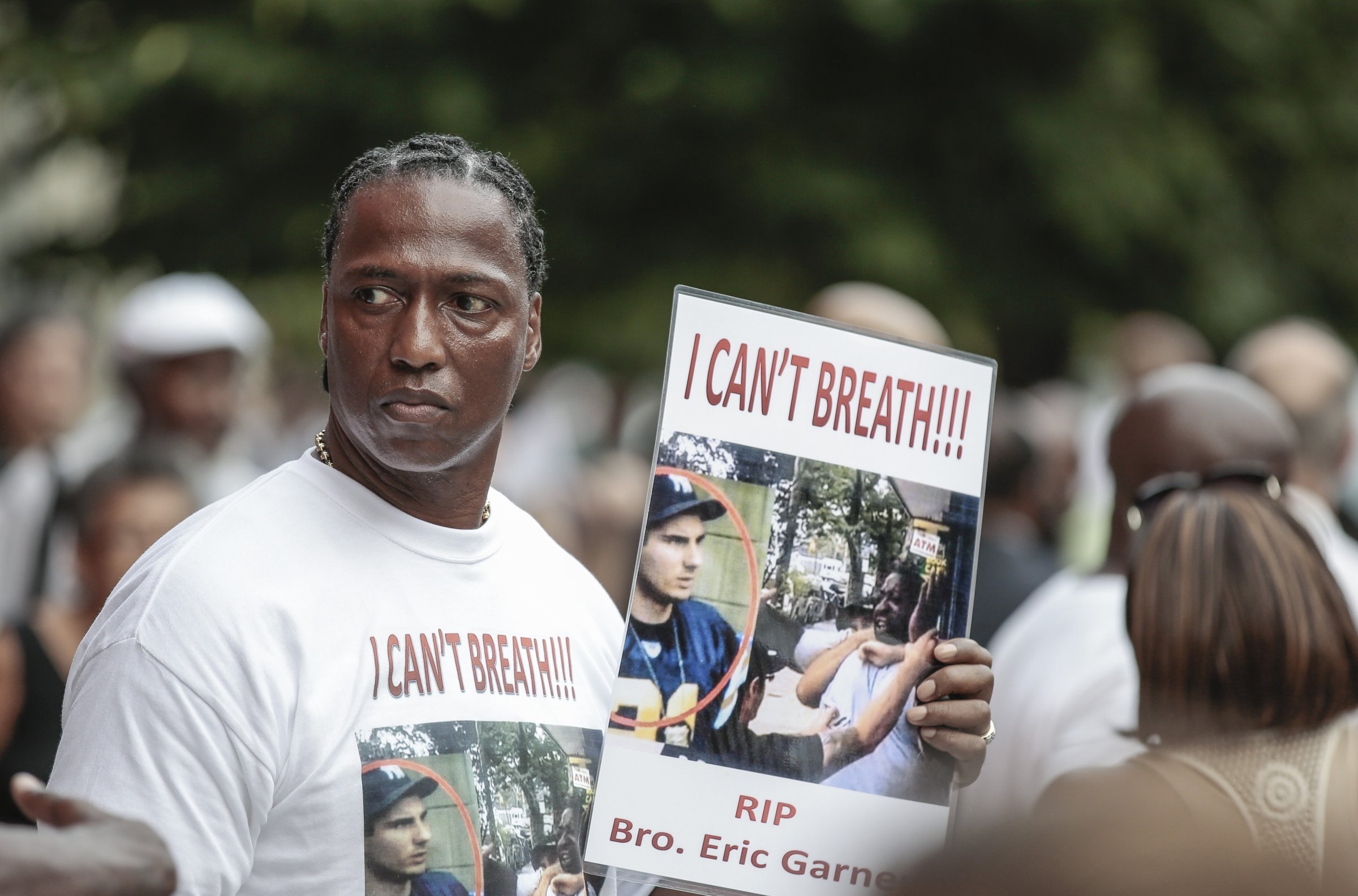
The number of complaints against the New York Police Department’s use of illegal chokeholds in the past year is the highest in a decade, according to a civilian-run agency tasked with investigating complaints against the NYPD.
The Civilian Complaint Review Board released a report Tuesday stating that between July 2013 and June 2014 it received 219 chokehold complaints, a number previously unseen since 2010. From 2006-2010, the agency received over 200 chokehold complaints per year.
“These findings demonstrate that, at least from the point of view of the particular experience of the complainants, police officers continue to use choke holds and the persistence of this practice puts civilians at physical risk,” the CCRB said in a statement.
The board added that these complaints were often not investigated, and that police were often not disciplined for using the restraining that has been prohibited by the NYPD Patrol Guide for over 20 years, the report said.
According to NYPD policy, a chokehold includes but is not limited to “any pressure to the throat or windpipe, which may prevent or hinder breathing or reduce intake of air.”
The definition has led some police officers to believe that a restraint is a chokehold only if breathing is restricted, which the CCRB maintains is a too limited interpretation. As a result, the number of chokehold incidents are likely underreported or misclassified, which has led to police officers bypassing discipline and investigation, said the report, which recommended the creation of a group involving both CCRB members and police officers to ensure that chokeholds are prohibited.
The NYPD’s use of force has drawn criticism in recent months after a bystander filmed a video of officers restraining in Eric Garner in July as he was arrested for selling untaxed cigarettes. Garner died while he was pinned down, which the medical examiner’s office ruled a homicide. A grand jury will be convened to decide whether or not to charge the officers.
More Must-Reads From TIME
- What Student Photojournalists Saw at the Campus Protests
- How Far Trump Would Go
- Why Maternity Care Is Underpaid
- Saving Seconds Is Better Than Hours
- Welcome to the Golden Age of Ryan Gosling
- Scientists Are Finding Out Just How Toxic Your Stuff Is
- The 100 Most Influential People of 2024
- Want Weekly Recs on What to Watch, Read, and More? Sign Up for Worth Your Time
Contact us at letters@time.com